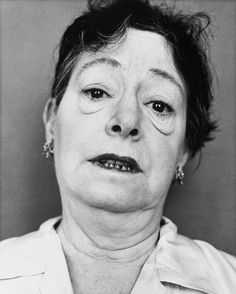 Born in 1893, the witty and talented author Dorothy Parker was an alcoholic who suffered from depression. During her later years, she committed herself to a sanitarium to “dry out,” which was the term used back in the day.
Born in 1893, the witty and talented author Dorothy Parker was an alcoholic who suffered from depression. During her later years, she committed herself to a sanitarium to “dry out,” which was the term used back in the day.
Parker told the doctor that she loved the room but that she needed to get out of the hospital every hour or for a drink at the local bar. The doctor told her that if she continued drinking the way she did, she would be dead within 30 days. Parker wryly responded with, “Promises, promises.”
Shortly after she left the hospital, which provided primitive forms of detox, she fell off the wagon. During her hospital stay, she probably suffered from horrible withdrawals, as was the case with many alcoholics who went into sanitariums back then.
Parker had a sad childhood. Her parents and stepmother died when she was young, and her Uncle Martin Rothschild went down with the Titanic. Needless to say, she suffered from trauma, which was another reason why she sought out alcohol.
One of her best short stories was Big Blonde, which was first published in 1929. The protagonist is a woman in her 30’s named Hazel Morse. Like Parker, Morse is an alcoholic. After her husband leaves her, she attempts suicide by overdosing on Veronal, which was used as a sedative during that era.
Her maid finds her completely unconscious, calls the doctor, and Hazel Morse survives. When she fully realizes that she is not dead, she asks the maid to pour them both a drink.
Before Morse takes a shot of her whiskey, she stares into the glass and thinks, Maybe, when you had been knocked cold for a few days, your very first drink would give you a lift. Maybe whiskey would be her friend again.
This story is somewhat autobiographical and gives us a clear picture of Parker’s alcoholism and depression.
Hazel Morse reached the depths of despair that many alcoholics achieve when the booze stops working, but they still can’t stop drinking. In the Big Book, this nadir is summarized as not being able to live with or without alcohol.
And it’s pretty apparent that Morse drinks because she is depressed, which often is the case with many alcoholics. Self-medicating with drugs and/or alcohol to ease symptoms of depression and anxiety is like shooting yourself in both feet. As a matter of fact, alcoholics who drink to alleviate their depression often end up with severe suicidal ideations. And in Big Blonde, Hazel Morse, attempts suicide.
And while Dorothy Parker produced wonderful short stories, poems, and prose, she suffered deeply. She attempted suicide at one point. Thanks to her alcoholism, her health failed, and she died of a heart attack, in 1967, at the age of 73. Parker left behind no survivors.
According to her obituary, “in her final illness, Miss Parker was melancholy about her life’s accomplishments. She wanted to write again, concise stories, but she lacked the strength.”
Parker would have benefitted from a drug rehab that not only offered a social model detox program but also provided comprehensive dual diagnosis support along with substance abuse and addiction treatment. And it appears that she needed trauma-informed therapy.
A beautiful drug rehab center like Cycles of Change Recovery Services would have provided her with the services that she required. Instead of a lonely ending, which was full of despair, she might have enjoyed recovery and found happiness and hope in her life.

